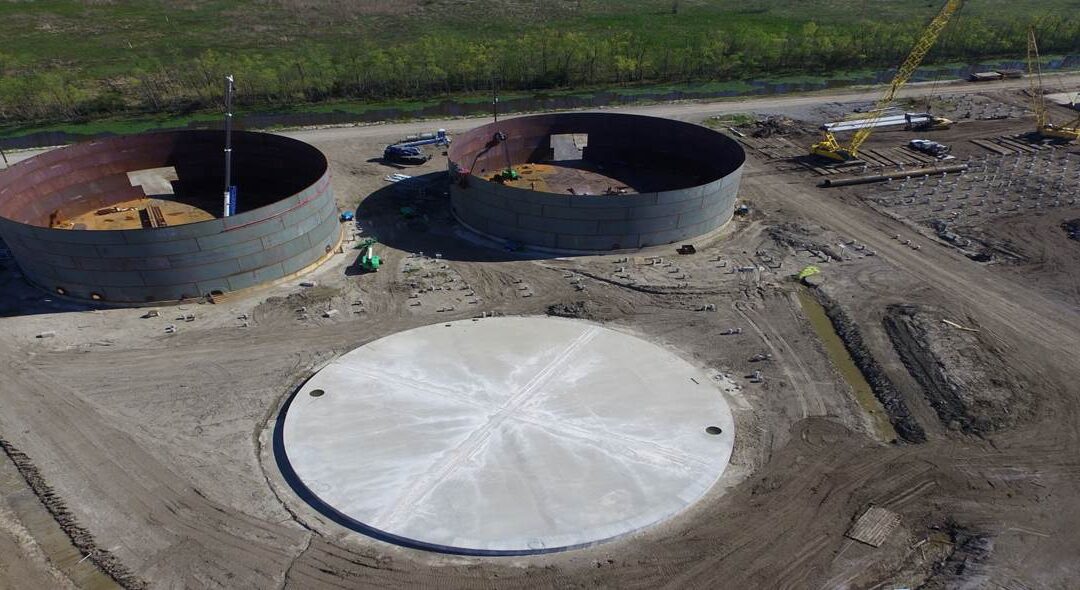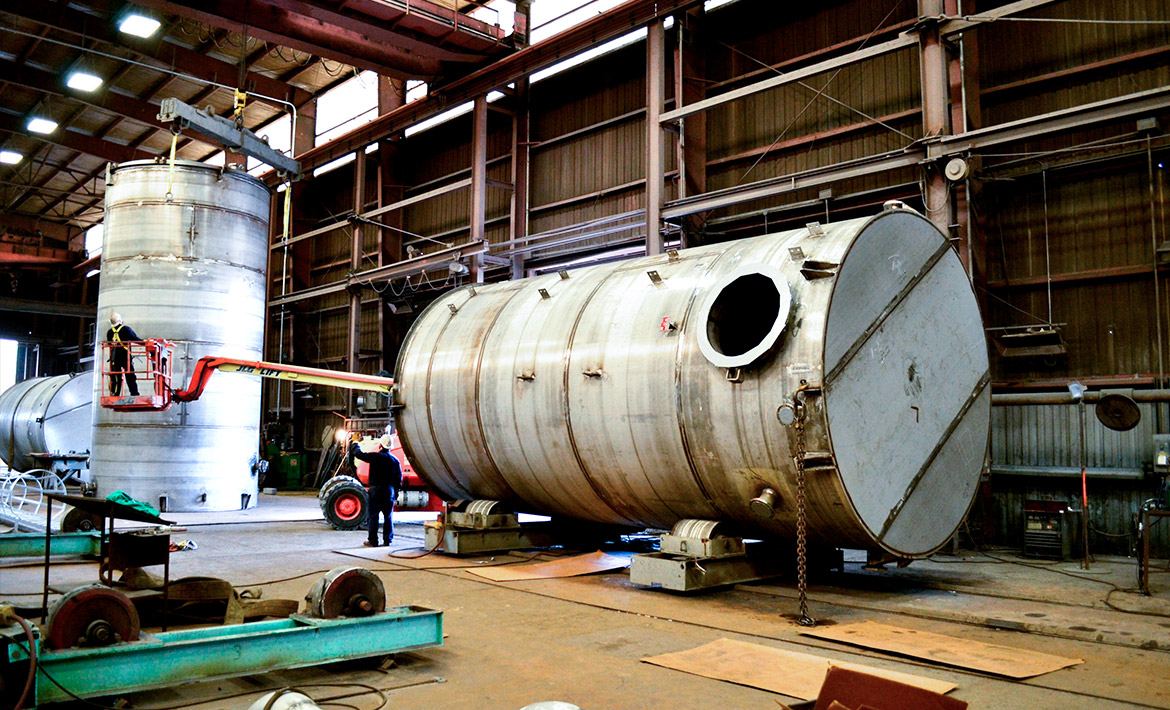Essential Stages Involved in the API 650 Welding Inspection Workflow
The Benefits of Welding Inspection for Enhanced Safety And Security and Efficiency
Welding examinations are essential for making sure that structures fulfill strict industry requirements. They play a crucial duty in identifying defects early, consequently boosting safety and security and lowering the danger of catastrophic failures. Additionally, these examinations can cause significant cost savings by protecting against expensive repair work and downtime. As organizations intend for enhanced performance and reliability, the value of a robust assessment procedure can not be overemphasized. What various other advantages might arise from a dedication to complete welding assessments?
Ensuring Conformity With Market Standards
Guaranteeing conformity with industry requirements is vital for maintaining top quality and security in welding jobs. Following recognized protocols not just protects employees yet likewise improves the sturdiness and performance of the end product. Welding assessments carried out at various stages of the procedure help determine any kind of deviations from these requirements, making it possible for timely restorative activities. This positive strategy mitigates the danger of failings that can result from ineffective workmanship.
Conformity with industry standards fosters count on amongst stakeholders, consisting of customers, governing bodies, and the labor force. It indicates a dedication to quality and responsible practices, which can lead to enhanced business opportunities and a competitive edge on the market - API 650 Welding Inspection. Routine assessments likewise ensure that strategies and products made use of line up with the most recent technical improvements and security guidelines. Inevitably, adherence to sector criteria is not simply a regulative requirement but a keystone of top quality guarantee in welding jobs
Enhancing Safety Via Very Early Detection of Defects
While the main goal of welding inspections typically fixates compliance, they play an important role in boosting safety by allowing the early discovery of issues. Recognizing problems such as insufficient combination, cracks, or porosity throughout assessments can significantly mitigate the threat of disastrous failures. Early discovery enables for prompt interventions, ensuring that damaged welds do not jeopardize structural integrity.
Furthermore, organized evaluations cultivate a society of security within organizations by highlighting the importance of quality assurance. This proactive strategy not only shields employees however additionally safeguards the surrounding atmosphere. Normal evaluations can disclose trends in flaw occurrence, enabling for changes in welding methods and training programs to resolve underlying issues.
Welding assessments serve as an important guard, reinforcing general security and efficiency by recognizing defects before they rise right into significant hazards. This commitment to top quality directly contributes to the durability and dependability of welded frameworks.
Lowering Prices by Preventing Failures
By executing complete welding examinations, companies can properly minimize prices connected with failings and revamp. The aggressive recognition of issues throughout the welding procedure decreases the risk of catastrophic failings that can bring about pricey fixings or substitutes. Early detection permits timely treatments, which stops the acceleration of minor issues right into significant issues that strain resources and budgets. In addition, by making certain that welds satisfy specified standards, companies can prevent delays in project timelines triggered by the need for comprehensive rework or extra assessments later on at the same time. This not only conserves money however likewise boosts operational efficiency. A track record for top quality craftsmanship can lead to increased client satisfaction and repeat organization, further adding to financial security. Overall, purchasing welding assessments is a strategic technique that fosters expense savings while securing the honesty of welded frameworks.
Improving Efficiency and Durability of Frameworks


Welding evaluations play a necessary duty in enhancing the efficiency and durability of structures, as they confirm that welds are implemented to the highest requirements. By recognizing issues early in the welding procedure, inspections avoid weak points that can endanger architectural honesty. This aggressive strategy warranties that the materials made use of satisfy needed specs, consequently enhancing their load-bearing capability and strength.
Consistent surveillance of welding methods contributes to the overall top quality of building and construction jobs. The potential for exhaustion and failure over time is greatly reduced when welds are validated for compliance with sector requirements. Structures that are constructed with appropriately examined welds are most likely to experience fewer maintenance problems and enhanced longevity.
Inevitably, strenuous welding evaluations not just reinforce the prompt efficiency of a framework however additionally prolong its operational life-span, offering lasting value to both building contractors and end-users alike.
Fostering a Culture of Top Quality and Reliability
A dedication to high quality and integrity in welding practices considerably contributes to the general success of building and construction projects. When organizations focus on these worths, they cultivate a culture that motivates thorough attention to see page detail and adherence to market criteria. This culture not only improves the ability level of welders however likewise advertises liability and teamwork among all stakeholders associated with the job.

Normal welding assessments offer as a foundation in this cultural change, enhancing the significance of constant efficiency and precaution (API 650 Welding Inspection). By carrying out extensive evaluation procedures, companies can recognize possible imperfections early, mitigating threats and staying clear of expensive rework. Moreover, a concentrate on quality and integrity imparts confidence among partners and clients, bring about more powerful connections and improved reputations
Eventually, cultivating a culture of quality and integrity in welding techniques not only boosts project end results however additionally ensures lasting sustainability and success in the building industry.
Often Asked Concerns
What Qualifications Should a Welding Assessor Have?
A welding assessor should possess pertinent certifications, such as AWS CWI or CSWIP. Furthermore, they must have experience in metallurgy, welding procedures, and inspection techniques, in addition to solid analytical skills and interest to information for reliable assessments.
Exactly How Usually Should Welding Inspections Be Performed?
Welding inspections should be conducted routinely, ideally after each significant phase of the welding procedure. In addition, routine examinations should occur based on task needs, solution conditions, and regulative standards to guarantee recurring top quality and safety and security.
What Equipment Are Utilized During Welding Inspections?
Welding evaluations utilize numerous devices, including ultrasonic testers, magnetic particle testers, aesthetic examination devices, and radiographic equipment. Each device offers a particular function, making sure weld quality and architectural honesty with comprehensive examination and analysis.
Can Welding Inspections Be Done Remotely?
Welding examinations can undoubtedly be performed remotely making use of sophisticated technologies such as drones and specialized electronic cameras. These tools make it possible for inspectors to evaluate welding high quality and integrity from a range, enhancing effectiveness and safety and security in different environments.
What Are the Typical Sorts Of Welding Flaws?
Common kinds of welding defects consist of porosity, cracks, incomplete blend, damaging, and slag addition. These issues can endanger the stability and toughness of welds, bring about possible failures in architectural applications if not attended to appropriately.
Welding inspections are necessary for ensuring that frameworks fulfill strict market criteria. Welding evaluations carried out at numerous stages of the process help determine any kind of deviations from these requirements, making it possible for prompt corrective actions. Welding assessments play an important function in improving useful link the efficiency and long life of structures, as they verify that welds are implemented to the highest standards. Welding evaluations must be performed regularly, visit site ideally after each considerable phase of the welding process. API 650 Welding Inspection. Welding assessments make use of numerous tools, including ultrasonic testers, magnetic particle testers, visual inspection tools, and radiographic equipment